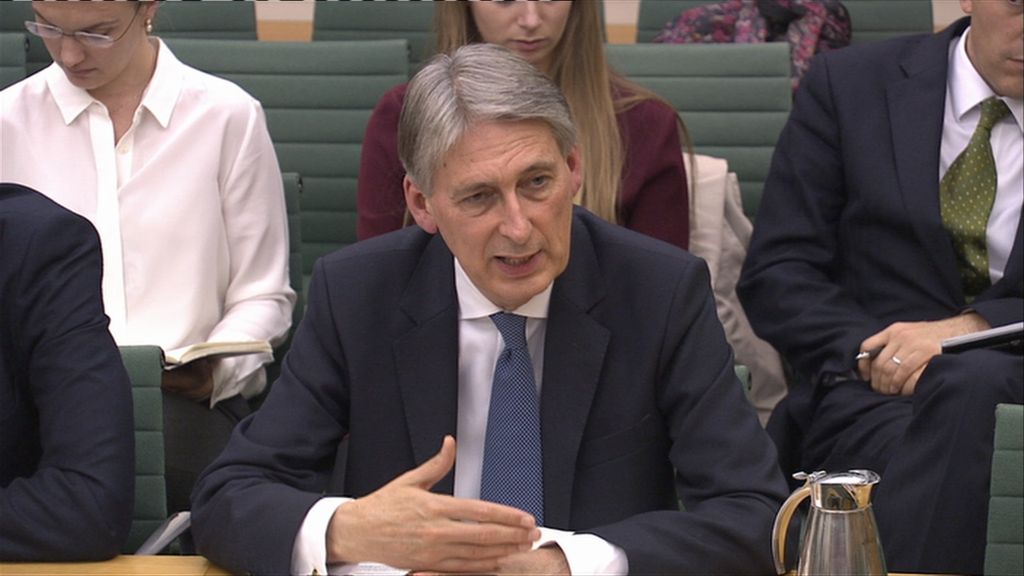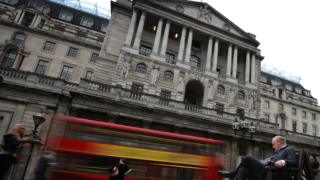Skilled workers ‘may be exempt from immigration controls’: Hammond – BBC News


The chancellor has indicated that highly skilled workers may be exempt from the government’s planned immigration controls.
Philip Hammond said he could not see why firms should be restricted from recruiting “high level” workers.
The public was not concerned about controls on “computer programmers, brain surgeons, bankers”, he said.
The chancellor said voters wanted restrictions on those migrants competing for “entry level jobs”.
“I cannot conceive of any circumstances in which we would be using those migration controls to prevent banks, companies moving highly qualified, highly skilled people between different parts of their businesses,” he said.
Giving evidence to MPs on the Treasury Select Committee, Mr Hammond did not dispel suggestions that he supported students being taken out of the target for reducing net migration.
Mr Hammond’s comments will fuel growing speculation that the government wants to introduce a work visa scheme aimed at low-skilled migrants.
On Tuesday night Downing Street released details of the aims of the government’s immigration sub-committee, which included a commitment to introduce a “targeted visa scheme”.
Elsewhere, Mr Hammond – who supported the remain campaign – appeared critical of some of his pro-Brexit cabinet colleagues.
He said those seeking “hard decisions” risked undermining the prime minister’s negotiations with the European Union.
The chancellor also criticised some of the recent briefing against him: “It would be far more helpful if we could conduct negotiations privately without leaks to newspapers.”
Analysis: Kamal Ahmed, Economics editor
The chancellor has said controversial Treasury analysis of the economic shock the UK might face if it left the European Union is now “partially invalid”.
It is a significant break with his predecessor, George Osborne, and with what became known by critics of the Remain campaign as “Project Fear”.
Philip Hammond said some of the assumptions behind the document – which suggested a significant drop in economic growth – had been superseded by events.
Those close to the chancellor made it clear the models were not wrong for the time, but the circumstances had now changed.
It is also clear that Treasury officials still believe that there will be an economic slowdown as Britain negotiates its exit from the EU, a position backed by the Bank of England.
MPs on the select committee also questioned the chancellor about the impact of Brexit on the economy.
Mr Hammond said they were right to identify that “uncertainty is the big challenge in the next phase of this process”, adding: “It’s a challenge to our economy – there will be a period inevitably of uncertainty until we know the outcome of the negotiations.”
He also tried to calm fears that the financial services sector would be hit hard by Brexit by saying that retaining passporting was important and “would be the ideal outcome”.
Passporting refers to the sector maintaining the same access to the EU’s financial services market as it enjoys under the UK’s membership of the union.
‘Extremely important’
“The reality is that financial services remains our single largest sector; it is responsible for a very large number of jobs straight across the United Kingdom, it’s not London-based industry,” Mr Hammond said.
“The industry knows that we regard it as extremely important, the industry knows that we understand that it has a particular set of challenges as we go into this period of negotiation with the European Union. And I hope the industry knows – it certainly should know – that helping to address these challenges and taking account of these challenges will be a very high priority for the government.”
However, the Chancellor admitted that some banks and financial firms were being “realistic and are looking at other options beyond passporting to protect their interests”.
 Image copyright AFP
Image copyright AFP Mr Hammond also insisted that the Bank of England’s Monetary Policy Committee, which sets interest rates, would remain responsible for monetary policy.
That stance was called into question after Mrs May made a surprise attack on the Bank in her speech to the Tory Party conference this month, saying that “a change has got to come”.
The Bank’s actions – such as maintaining low interest rates since the financial crash – had meant those with assets such as property had got richer, while those without had suffered, Mrs May said.
Mr Hammond was asked what Mrs May’s promised “change” referred to if it was not monetary policy.
He said: “There will be no change in monetary policy. Monetary policy is independently determined, that will continue to be the case.”
Read more: http://www.bbc.co.uk/news/business-37705852